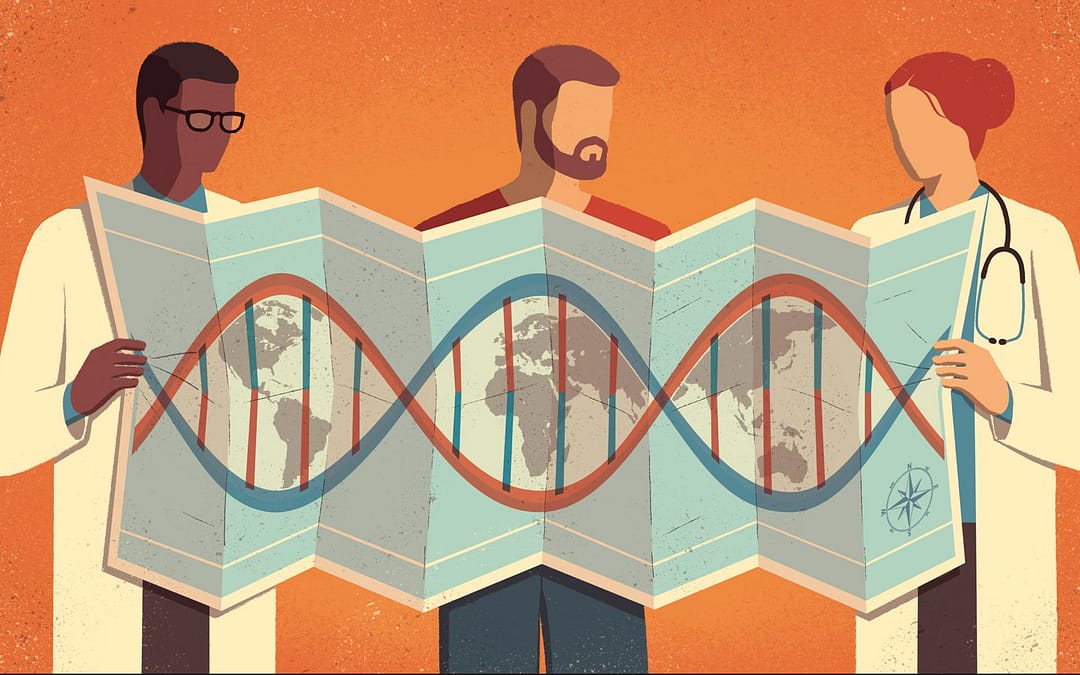The National Comprehensive Cancer Network (NCCN) provides guidelines to help determine who should have genetic testing for hereditary cancers and how individuals should be followed after testing. They recently published updates to these guidelines that we’ve summarized below. The full guidelines can be found here. We’ve also previously published a list of risk factors, that if present in your personal or family history, should prompt consideration of seeing a certified genetic counselor.
Here are the additions:
1. Who should have BRCA testing?
a. Any man with a personal history of metastatic prostate cancer is a candidate for BRCA and BRCA2 testing. Metastatic prostate cancer is a cancer that has traveled outside of the prostate.
b. Anyone found to have a BRCA1/2 mutation in tumor tissue (known as a somatic mutation) from ANY TUMOR TYPE is a candidate for BRCA testing, to learn if this mutation may be in other cells of their body and thus inherited. This addition was made in the December 2016 update to the NCCN guidelines but is worth repeating as it is still relatively new.
c. Again, please find a full list of risk factors here.
2. I have a BRCA mutation, how should I be followed?
a. Women with BRCA mutations who are being screened for breast cancer should consider MRI as the preferred screening method due to the possible risk of radiation exposure from mammography.
b. If breast MRI screening is not available or not possible, a mammogram can be done with consideration of tomosynthesis (an advanced type of mammogram sometimes called a 3D mammogram).
c. For women with a BRCA2 mutation, the guidelines restated that it is reasonable to delay ovary and fallopian tube removal until age 40-45. However, this should be considered carefully in the context of your personal and family history.
d. For women who have not had their ovaries and fallopian tubes removed, the guidelines revised that screening with transvaginal ultrasound and CA-125 blood marker is of uncertain benefit, but may being at age 30-35.
3. Any other updates?
a. The guidelines for breast cancer screening for individuals with Li-Fraumeni (TP53 mutations), Cowden syndrome (PTEN mutations) and mutations in the ATM, CDH, CHEK2, NBN, NF1 and PALB2 have added that mammogram can be done with consideration of tomosynthesis.
b. Other updates include changes in management for individuals with Li-Fraumeni (TP53 mutations), Cowden syndrome (PTEN mutations) and mutations in the ATM, CHEK2 and NF1 genes. Please see the full document for these details.
c. Patients diagnosed with advanced breast cancer that is HER2-negative AND who are eligible for single-agent chemotherapy are eligible for germline BRCA 1/2 testing. If BRCA+, they may be a candidate to take a medication called Olaparib (also called Lynparza), a PARP inhibitor that is FDA approved for the treatment of patients with advanced breast cancer and BRCA pathogenic variants.
NCCN Genetic/Familial High-Risk Assessment: Breast and Ovarian Version 1.2018
NCCN Clinical Practice Guidelines in Oncology: Breast Cancer Version 4.2017

